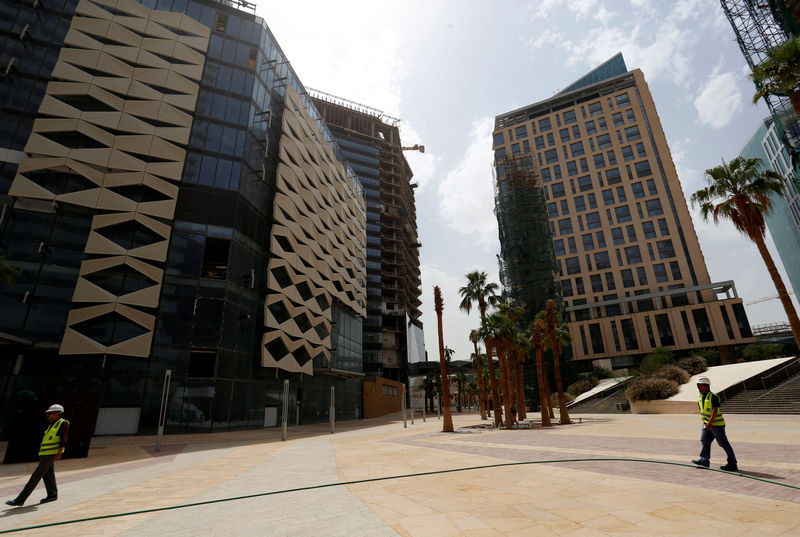Investing.com - The Saudi market and the TASI index experienced a series of declines in May and the first week of June. To understand the situation better, we conducted an interview with economic analyst Mustafa Abdulaziz to discuss the reasons behind this decline, his views on TASI offerings and Aramco (TADAWUL:2222) listing, and his overall outlook on the future of the Saudi stock market and its main influencing factors.
What are the reasons for the recent decline in Saudi market stocks?
Economic analyst Mustafa Abdulaziz responded to this question by saying: "In my opinion, the current decline in the Saudi market is due to two main reasons. The first and most significant is the sharp drop in oil prices, with oil falling by more than 5% in May and again by over 5% in the last two days following the OPEC+ decision (OPEC decision)."
He continued: "These declines strongly affected the petrochemical sector (2310), particularly Aramco and SABIC, and also impacted the banking sector, which is influenced by expectations of the U.S. Federal Reserve's interest rates, which the Saudi central bank tends to follow."
He concluded his response by discussing U.S. interest rates, stating: "Recent economic data from the United States indicate that the American economy can withstand higher interest rates for a longer period, allowing the Federal Reserve to delay interest rate cuts. This puts pressure on U.S. stocks and the Saudi banking sector."
Do you want to know which stocks are trading below their fair value in the Saudi market and the strongest stocks based on dividend distributions? Use the InvestingPro tool and subscribe now with a 40% discount before it ends.
What is your view on the additional share offerings of Aramco and its impact on the price?
Mustafa answered this question by considering that offering new shares of oil giant Aramco is positive for the Saudi economy as it provides more capital for development projects and Vision 2030. However, the direct impact on the share price is not significant. The stock will be more affected by OPEC+ and oil prices rather than the size of the offering.
He expects Aramco's share price to stabilize below 30 riyals in the coming period unless geopolitical developments stimulate demand.
He evaluated this price as positive for conservative investors who prefer buying shares and receiving dividends from strong and stable companies.
What is the impact of the numerous offerings in the Saudi market in 2023 and 2024?
Mustafa remarked, "The numerous offerings in the Saudi market in 2024 in both the main and parallel markets are positive for the market and economic activity as a whole. This is reflected in the daily trading volumes, which now exceed ten billion riyals daily. Despite the positive aspect, it represents a challenge in capital distribution, upward movements, reviews, and selection processes, focusing capital and investments from both companies and individuals."
Mustafa rejected any connection between the numerous offerings and any market declines.
Do you consider this decline an opportunity to buy the dip?
Mustafa Abdulaziz said: "I see every decline in a healthy market as a buying opportunity for everyone. It is essential to research, review, and use accurate data and true value readings to determine the stocks to buy and invest in. But the decision to buy in any bearish climate is correct and indeed the best."
He particularly pointed to leading stocks like Aramco, STC, and Al Rajhi (TADAWUL:1120), noting that these companies issued positive results for the first quarter and are currently in a declining phase despite their financial stability. Therefore, he sees them as opportunities for long-term investment.
He concluded by saying: "I believe targeting stocks with good dividend distributions and high dividend yields will generate profits during a market uptrend."
Where do you expect the Saudi market to go from here and what factors will be important?
Mustafa responded that there are four factors that will affect the Saudi market and global financial markets in the upcoming period, which he explained as follows:
- OPEC+ decisions and their impact on the market: OPEC has decided to extend cuts while announcing a gradual halt to some voluntary cuts by the end of 2025. The markets and investment banks perceived this news as bearish for oil.
- The state of the Chinese economy and oil demand from China specifically.
- Interest rate expectations and movements by the U.S. Federal Reserve and other central banks, which primarily react to economic data and statements from Federal Reserve members.
- The U.S. elections, the winner of the presidential race, and the status of the Palestinian issue: whether there will be a permanent ceasefire agreement or not.
Mustafa added: "Although these are the known main drivers of the economy, unexpected events 'black swans' always influence the economy."
Subscribe to the InvestingPro tool and get, ready-made investment lists on Wall Street, historical stock data, financial summaries of stocks, and price targets from analysts - all with a 40% discount for a limited time. Subscribe here:
